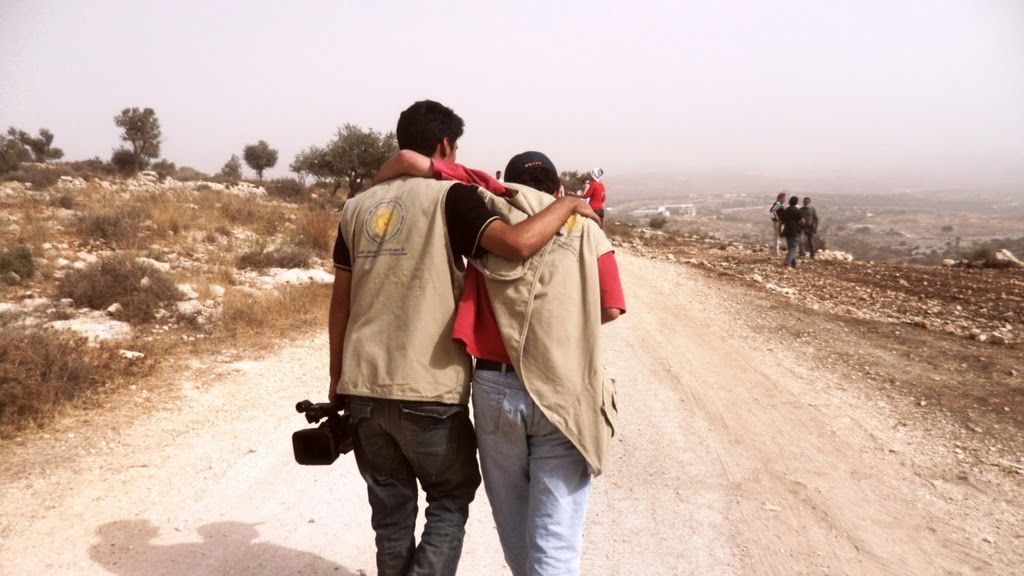Category: Journals
-
Fishing in Gaza – no day at the beach
24 October 2011 | Notes from Behind the Blockade I saw an Israeli naval warship for the first time yesterday, a concrete monster the color of ash, guzzling up the Mediterranean and spurting it out in its wake. I rose early to go out with the Oliva, a small white boat used by Civil Peace…
-
Ashraf Abu Rahmah was arrested for being himself
23 October 2011 | International Solidarity Movement, West Bank To some soldiers of the Israeli army, staying alone, being quiet, and carrying a flag is a crime. To them, people who act in that way should be arrested. At least we can come to that conclusion when we think about the arrest of Ashraf Abu…
-
Honeymoon in Gaza
16 October 2011 | International Solidarity Movement, Gaza I had just finished off a plate of homemade bread knaffe yesterday with a family in the south of Gaza, when we got the call: farmers in Beit Hanoun, a village in the north of the Gaza Strip, requested that ISM volunteers accompany them to pick olives…


